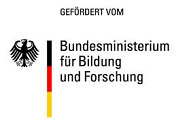As a first-year student, we recommend that you attend both the “Brückenkurs Mathematik” (preparatory course mathematics) and the introductory course prior to the start of the lecture period. During this introductory stage, you will receive information on your degree program and on necessary steps, such as how to register for courses and examinations using JOGUStINe.
Overview
Welcome to Mainz!
As you may know, employment opportunities for STEM subjects are excellent. As a mathematician, you are extremely likely to find a job that is both fulfilling and well-paid. In your future career, you will mainly benefit from “stimulation of the prefrontal cortex,” – an inevitable phenomenon when studying mathematics – as opposed to the actual mathematical teaching content itself. This is something you will come to understand after a few semesters.
It is vital that you enjoy mathematics and display a strong sense of curiosity if you intend to achieve a certain level of success during your degree. In our experience, your academic success depends on your attitude towards your degree. The differences between school and university are immense. The pace is a lot higher, and so is your level of self-responsibility. Considering that the workload should amount to 40 hours, it will probably feel slightly odd when you realize that the first semester in the Bachelor of Science program consists of just two four-hour lectures a week (one four-hour and one two-hour lecture plus practice class and tutorials for a Bachelor of Education student), adding up to only 14 hours a week (only 10 for Bachelor of Education students). It is important to realize that the program consists of *four* elements: The first element being lectures, the second tutorials (students in higher academic semesters discuss your weekly exercises with you in small groups), the third your independent learning and literature reviews (you prepare and revise lectures, solve tasks and work through different literary sources), and the fourth the maths workshop (you meet with fellow students to discuss your exercises and questions on the subject of the lectures). If you add these elements together, you will soon realize that the degree program is rather time-consuming.
However, unlike in overcrowded subjects, nobody will deliberately be given a “fail” in a bid to keep courses small. Lecturers and staff are willing to do all they can in order to support motivated and committed students. The Student Council (studentische Fachschaft) represents students’ interests. They are happy to help you with any difficulties and encourage you to get involved in the Student Council, even during your first year.
Registration for courses and examinations on JOGUStINe
You have to register for all your courses before the lecture period starts! You need to register via JOGUStINe. You can log in to JOGUStINe with your password – which is sent to you by the Data Center (Zentrum für Datenverarbeitung, ZDV) – and register for modules, courses and examinations.
For a detailed description of the registration process, please click on the link below:
www.info.jogustine.uni-mainz.de/studierende/lehrveranstaltungsanmeldung (available in german only)
"Lernwerkstatt Mathematik"
Jeder Studienanfänger kennt früher oder später vermutlich diese Probleme:
"Mein Kopf raucht, beim Übungsblatt komme ich irgendwie nicht weiter..."
"Ich habe hat zwar 'was raus', bin mir aber nicht sicher, wie ich es aufschreiben soll..."
"Im Grunde habe ich es verstanden, aber ich muss es noch üben, damit es richtig sitzt..."
"Zu Hause gibt es für mich zu viel Ablenkung, um mich mal richtig in die Aufgaben zu vertiefen..."
Die Lernwerkstatt Mathematik bietet Studierenden die Möglichkeit, den Stoff aus den Vorlesungen gemeinsam zu wiederholen, die wöchentlichen Übungszettel zu bearbeiten und zu diskutieren, und sich dabei voll und ganz auf Mathematik zu konzentrieren. Das offene Forum richtet sich vor allem an Studierende der Bachelorstudiengänge Mathematik und Informatik, die die obligatorischen Anfängervorlesungen in Mathematik besuchen. Die Arbeit in Gruppen steht dabei deutlich im Vordergrund. Betreut wird die Lernwerkstatt durch mehrere Mathematikstudenten aus höheren Fachsemester, die als Tutoren die Aufgabenstellungen erklären und neue Ansätze und Denkanstöße in die Diskussion einbringen.
Zeit: Mo-Do, jeweils 15:00-18:45 Uhr
Ort: Zentralmensa, Theke 3 und 4

Eine Anmeldung zur Lernwerkstatt ist übrigens nicht erforderlich.
Kommen Sie einfach vorbei!
